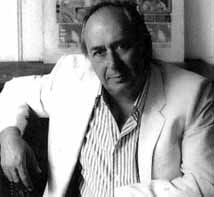
James Graham Ballard was an English novelist and short story writer, satirist and essayist known for psychologically provocative works of fiction that explore the relations between human psychology, technology, sex and mass media. Ballard first became associated with New Wave science fiction for post-apocalyptic novels such as The Drowned World (1962), but later courted political controversy with the short-story collection The Atrocity Exhibition (1970), which includes the story "Why I Want to Fuck Ronald Reagan" (1968) and the novel Crash (1973), a story about car-crash fetishists.
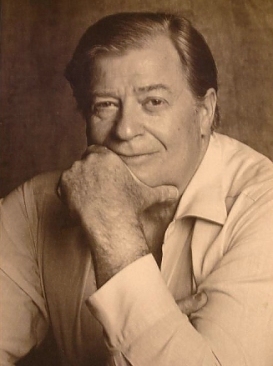
James Clavell was an Australian-born British writer, screenwriter, director, and World War II veteran and prisoner of war. Clavell is best known as the author of his Asian Saga novels, a number of which have had television adaptations. Clavell also wrote such screenplays as those for The Fly (1958) and The Great Escape (1963). He directed the popular 1967 film To Sir, with Love for which he also wrote the script.

The Treaty of Nanking was the peace treaty which ended the First Opium War (1839–1842) between Great Britain and the Qing dynasty of China on 29 August 1842. It was the first of what the Chinese later termed the Unequal Treaties.

Tai-Pan is a 1966 novel written by James Clavell about European and American traders who move into Hong Kong in 1842 following the end of the First Opium War. It is the second book in Clavell's Asian Saga, and the first to feature the fictional Struan family.
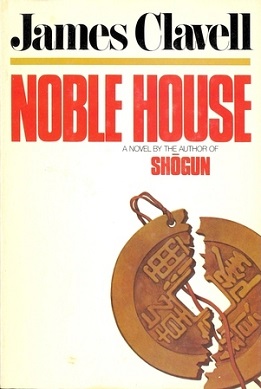
Noble House is a novel by James Clavell, published in 1981 and set in Hong Kong in 1963. It is the fourth book published in Clavell's Asian Saga and is chronologically the fifth book in the series. The "Noble House" in the title is the nickname of Struan's, the trading company first introduced in Clavell's Tai-Pan.

Whirlwind is a novel by James Clavell, first published in 1986. It forms part of The Asian Saga and is chronologically the last book in the series.
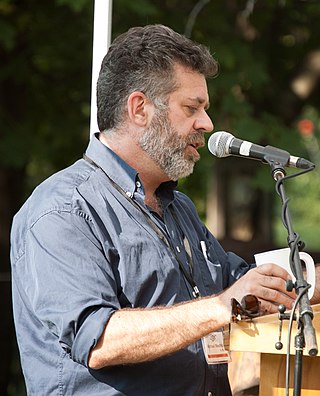
Michael Redhill is an American-born Canadian poet, playwright and novelist. He also writes under the pseudonym Inger Ash Wolfe.

Nanjing Road is a road in Shanghai, the eastern part of which is the main shopping district of Shanghai. It is one of the world's busiest shopping streets, along with Fifth Avenue, Oxford Street, Orchard Road, Takeshita Street and the Champs-Élysées. The street is named after the city of Nanjing, capital of Jiangsu province neighbouring Shanghai, and the former national capital of the Republic of China. Today's Nanjing Road comprises two sections, Nanjing Road East and Nanjing Road West.
David Davidar is an Indian novelist and publisher. He is the author of three published novels, The House of Blue Mangoes (2002), The Solitude of Emperors (2007), and Ithaca (2011). In parallel to his writing career, Davidar has been a publisher for over a quarter-century. He is the co-founder of Aleph Book Company, a literary publishing firm based in New Delhi.

An opium den was an establishment in which opium was sold and smoked. Opium dens were prevalent in many parts of the world in the 19th century, most notably China, Southeast Asia, North America, and France. Throughout the West, opium dens were frequented by and associated with the Chinese because the establishments were usually run by Chinese mobsters, who supplied the opium and prepared it for visiting non-Chinese smokers. Most opium dens kept a supply of opium paraphernalia such as the pipes and lamps that were necessary to smoke the drug. Patrons would recline to hold the long opium pipes over oil lamps that would heat the drug until it vaporized, allowing the smoker to inhale the vapors. Opium dens in China were frequented by all levels of society, and their opulence or simplicity reflected the financial means of the patrons. In urban areas of the United States, particularly on the West Coast, there were opium dens that mirrored the best to be found in China, with luxurious trappings and female attendants. For the working class, there were many low-end dens with sparse furnishings.
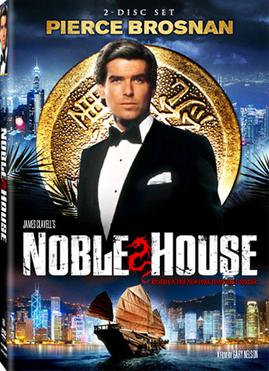
Noble House is an American action-drama television miniseries that was produced by De Laurentiis Entertainment Group, and broadcast by NBC in four segments on February 21–24, 1988. Based on the 1981 novel of the same name by James Clavell, it features a large cast headlined by Pierce Brosnan as business tycoon Ian Dunross and was directed by Gary Nelson. Due to time restrictions, several of the many subplots from the book were removed.
Robert Rotenberg is a Canadian criminal defence lawyer and writer, based in Toronto. He has worked as a criminal defence lawyer from the 1990s. As of April, 2019 he practices as part of the association of Rotenberg Shidlowski Jesin. Rotenberg's first novel, Old City Hall is an international best-seller. He has written four additional legal thriller novels.

Cheng Tien-fong, was a Chinese educator, politician and diplomat. Cheng was a former President of Zhejiang University, and former Minister of Education of the ROC.

Jardine Matheson Holdings Limited is a Hong Kong-based, Bermuda-domiciled British multinational conglomerate. It has a primary listing on the London Stock Exchange and secondary listings on the Singapore Exchange and Bermuda Stock Exchange. The majority of its business interests are in Asia, and its subsidiaries include Jardine Pacific, Jardine Motors, Hongkong Land, Jardine Strategic Holdings, DFI Retail Group, Mandarin Oriental Hotel Group, Jardine Cycle & Carriage and Astra International. It set up the Jardine Scholarship in 1982 and Mindset, a mental health-focused charity, in 2002.

The Shanghai Exhibition Centre or the Shanghai Exhibition Hall is an exhibition and convention centre in central Shanghai. The building was built in 1955 as the Sino-Soviet Friendship Building to commemorate the alliance between China and the Soviet Union, a name by which many locals still refer to the building. Reflecting its original name, the design draws heavily on Russian and Empire style neoclassical architecture with Stalinist neoclassical innovations.

The Beth Aharon Synagogue was a Sephardi synagogue in Shanghai, China, built in 1927 by the prominent businessman Silas Aaron Hardoon in memory of his father Aaron. During World War II, the synagogue provided refuge for the Mirrer yeshiva of Poland, the only Eastern European yeshiva to survive the Holocaust intact. After the establishment of the People's Republic of China, it was used by the Wenhui Bao newspaper and as a factory during the Cultural Revolution. It was demolished in 1985.

Walk Like a Dragon is a 1960 American Western film directed by James Clavell, written by James Clavell and Daniel Mainwaring, and starring Jack Lord, Nobu McCarthy, James Shigeta, Mel Tormé, Josephine Hutchinson, Rodolfo Acosta and Benson Fong. It was released on June 1, 1960, by Paramount Pictures.
David Charles Rotenberg, is a Canadian author and professor emeritus of theatre studies at York University, where he taught graduate students for over 25 years, as well at the Professional Actors Lab in Toronto, which he founded as the artistic director. David Rotenberg has been referred to as one of Canada's "most notable acting teachers and coaches," and may be the nation's best known master acting teacher. During the formative part of his career, he was a theatre director in New York City and staged two Broadway shows, returning to Toronto in 1987. In 1994, he directed the first Canadian play to be staged in the People's Republic of China, which inspired his career as a novelist, beginning with the five Zhong Fong mysteries set in modern Shanghai as well as the historical fiction novel Shanghai. After writing a series of speculative thrillers set in The Junction, Toronto, He began a science fiction series in 2017.

The Junction Chronicles is a trilogy of Canadian speculative thrillers by David Rotenberg, whose protagonist, acting coach Decker Roberts, a synaesthete with a special talent for determining the truth in statements, lives in the neighbourhood of The Junction in Toronto, supplementing his income with his unique talent and becoming involved with American intelligence agents after his life begins to fall apart. The series was first published by Simon & Schuster between 2012 and 2014.

The Zhong Fong mystery series is a quintet of Canadian novels by theatre director and acting coach David Rotenberg, set primarily in contemporary Shanghai, China, and named after the series protagonist, Detective Inspector Zhong Fong. In addition to The Shanghai Murders (1998) and its four sequels, the character also makes a cameo appearance in Rotenberg's epic historical novel, Shanghai. The series and Shanghai have both received critical acclaim and sold well worldwide.





















